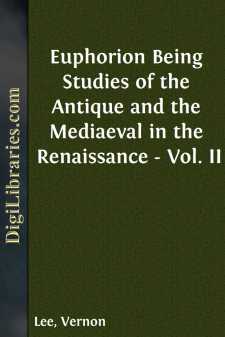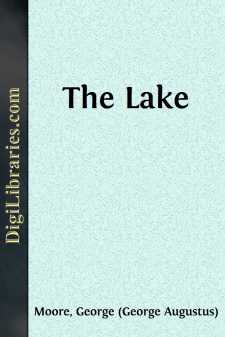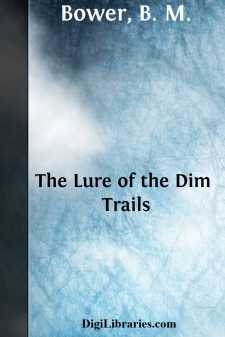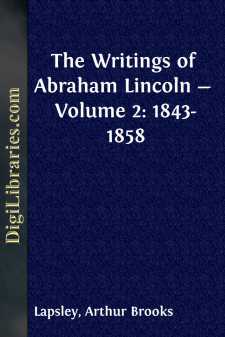Categories
- Antiques & Collectibles 13
- Architecture 36
- Art 48
- Bibles 22
- Biography & Autobiography 813
- Body, Mind & Spirit 142
- Business & Economics 28
- Children's Books 13
- Children's Fiction 10
- Computers 4
- Cooking 94
- Crafts & Hobbies 4
- Drama 346
- Education 46
- Family & Relationships 57
- Fiction 11828
- Games 19
- Gardening 17
- Health & Fitness 34
- History 1377
- House & Home 1
- Humor 147
- Juvenile Fiction 1873
- Juvenile Nonfiction 202
- Language Arts & Disciplines 88
- Law 16
- Literary Collections 686
- Literary Criticism 179
- Mathematics 13
- Medical 41
- Music 40
- Nature 179
- Non-Classifiable 1768
- Performing Arts 7
- Periodicals 1453
- Philosophy 64
- Photography 2
- Poetry 896
- Political Science 203
- Psychology 42
- Reference 154
- Religion 513
- Science 126
- Self-Help 84
- Social Science 81
- Sports & Recreation 34
- Study Aids 3
- Technology & Engineering 59
- Transportation 23
- Travel 463
- True Crime 29
Sort by:
by:
Laura Lee Hope
CHAPTER I THE SNOW MAN "Oh, Bunny! what you making such a big nose for?" "So I can hit it easier, Sue, when I peg snowballs at it." Bunny Brown and his sister Sue were in the backyard of their home, making a big man of snow. There had been quite a storm the day before, and many white flakes had fallen. As soon as the storm stopped and the weather grew warm enough, Mrs. Brown let Bunny...
more...
The School cuts me. I hardly know yet what it was all about, and at the time I had not an idea. I don’t think I was more of a fool than most fellows of my age at Draven’s, and I rather hope I wasn’t an out-and-out cad. But when it all happened, I had my doubts on both points, and could explain the affair in no other way than by supposing I must be like the lunatic in the asylum, who, when asked...
more...
by:
F. W. Reitz
INTRODUCTION. BROTHER AFRICANDERS! Once more in the annals of our bloodstained history has the day dawned when we are forced to grasp our weapons in order to resume the struggle for liberty and existence, entrusting our national cause to that Providence which has guided our people throughout South Africa in such a miraculous way. The struggle of now nearly a century, which began when a foreign rule was...
more...
by:
Vernon Lee
I. Real and Ideal—these are the handy terms, admiring or disapproving, which criticism claps with random facility on to every imaginable school. This artist or group of artists goes in for the real—the upright, noble, trumpery, filthy real; that other artist or group of artists seeks after the ideal—the ideal which may mean sublimity or platitude. We summon every living artist to state whether he...
more...
Chapter One "I won't!" cried Ann; "I won't sweep the floor. It is beneath my dignity." "Some one must sweep it," replied Ann's younger sister, Salye; "else we shall soon be wading in dust. And you are the eldest, and the head of the family." "I'm Queen of Oogaboo," said Ann, proudly. "But," she added with a sigh, "my kingdom is the...
more...
by:
Austin Dickinson
THE DUTY AND IMPORTANCE OF SPECIAL EFFORTS FOR THE CONVERSION OF CITIES. Luke xxiv. 47.—And that repentance and remission of sins should be preached in his name among all nations, beginning at Jerusalem. Here the apostles receive from Christ a commission to commence in one of the chief cities of the world the great business of preaching the gospel to mankind. The fulfilment of prophecy required them...
more...
ROBERT LOUIS STEVENSON AN ELEGY High on his Patmos of the Southern SeasOur northern dreamer sleeps,Strange stars above him, and above his graveStrange leaves and wings their tropic splendours wave,While, far beneath, mile after shimmering mile,The great Pacific, with its faery deeps,Smiles all day long its silken secret smile. Son of a race nomadic, finding stillIts home in regions furthest from its...
more...
ÉPÎTRE DÉDICATOIRE 17 Août, 1905. MON CHER DUJARDIN, Il se trouve que je suis ÐÑ Paris en train de corriger mes épreuves au moment où vous donnez les dernières retouches au manuscrit de 'La Source du Fleuve Chrétien,' un beau titre—si beau que je n'ai pu m'empêcher de le 'chipper' pour le livre de Ralph Elles, un personnage de mon roman qui ne parait...
more...
by:
B. M. Bower
CHAPTER I. IN SEARCH OF THE WESTERN TONE "What do you care, anyway?" asked Reeve-Howard philosophically. "It isn't as if you depended on the work for a living. Why worry over the fact that a mere pastime fails to be financially a success. You don't need to writeвÐâ" "Neither do you need to slave over those dry-point things," Thurston retorted, in none the...
more...
FIRST CHILD TO JOSHUA F. SPEED. SPRINGFIELD, May 18, 1843. DEAR SPEED:—Yours of the 9th instant is duly received, which I do not meet as a "bore," but as a most welcome visitor. I will answer the business part of it first. In relation to our Congress matter here, you were right in supposing I would support the nominee. Neither Baker nor I, however, is the man, but Hardin, so far as I can...
more...











